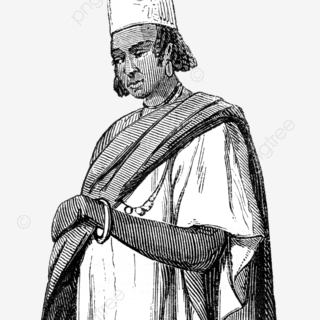By Segun Dipe
Oluru yo wi k’ọliyo mọ ta…(Ekiti dialect)
Literarily speaking: sell your apple while I sell my orange.
The ship of gubernatorial election in Nigeria will soon berth in Ekiti as its next destination. Barring any last minute glitch, the Independent National Electoral Commission, INEC will release the election time table that will signal the flag off of the electoral process in both Ekiti and that of Osun, which will come immediately after. By then individuals will start expressing their interests at bidding for the primaries that will make them emerge as the candidate of their various parties.
Expectedly, we are in the season before the INEC declaration. That season in Ekiti when people will be making subterranean moves at marketing their potential aspirants and de-marketing those of others. That season when name calling becomes the order of the day from various camps. That season when half truth and bare faced lie-telling are bandied as the truth. In Ibadan parlance, it is called the season of leemo (haul it at him).
For starters, trolling is a technological threat to democracy.
Issues like disinformation, mass surveillance, and online polarization can undermine democratic norms and institutions. But a troll would care less about that. In online slang, troll refers to someone who deliberately posts offensive, provocative, or disruptive content to incite reactions or derail conversations. They often aim to upset others or gain attention by starting arguments or causing trouble. This behavior can manifest in various ways, such as posting inflammatory comments, sending malicious messages, or using derogatory language.
Trolls often have no genuine purpose beyond disrupting discussions or provoking reactions. They may use offensive language, spread false information, or engage in personal attacks to get a rise out of others.
When trolls troll, they care the least about the consequences. All that matters to them is to gain an upper hand for their would-be aspirants, or rather, to bolster the confidence of a person to the point that such would see himself or herself as the best possible candidate and eventual winner of the coming elections, first the primaries, then the general.
It is observed that trolling is rough, repressive and gutterly. Rather than simply sell their principals, the trolls play the game with impunity and employ the worst of tackles. To them, it’s simply a game of thrones and they can laugh it off at the end without minding how much injury it has caused their victims. After all, as they would say, anyone who can’t endure the heat should not bother entering the kitchen.
Indeed, trolling heats up the political space. The worse guilty are those trying to snatch power for their principal. They will defy all sane reasonings to bully the person in the saddle and provoke his followers to no end, so they, the trolls can capitalise on any retort from their victims.
The trolls in Ekiti have not performed any different. Pretending they don’t realise that the sitting governor is entitled to another four-year term in office, they have been employing all forms of tricks to galvanise negative thoughts against Governor Biodun Abayomi Oyebanji, interpreting all his good intentions negatively and condemning all positive appraisals he is getting.
One would expect the trolling to coming from those in the opposition party, but it is coming in the form of envy from those who claim to be members of the ruling party. To them, there are some forces external to the state somewhere, who would stop the governor from running a constitutionally-approved second term, no matter how well the governor may have positioned himself in the consciousness of the people he is governing. If he likes, let him be garlanded with all the honours in this world, the trolls believe they can pull him down and make him look bad to the electorates.
And there is this talk of endorsement or adoption of the governor for a second term. His traducers will hear no such thing.
They kept querying why anyone would dare to endorse a sitting governor for another term. It is a constitutional abberation, a heinous offence to commit, they’d say. They have argued this to high heavens. Little did they understand that they were only confusing endorsement with the campaign proper. There is nothing constitutionally wrong with any group of persons endorsing anyone for a future election. What the Constitution frowns at is for such a person to come out boldly and declare his intention to contest before the electoral umpires blow the whistle.
But lo, while the sitting governor is being endorsed by the people for a constitutionally approved second term, others with the ambition to seize the power from him are brazenly declaring their intention to contest and even making the pronouncement barefaced.
Talking about endorsement of a sitting governor (as with a sitting President) for a second term, the principle is enshrined in the 1999 Constitution of the Federal Republic of Nigeria, which also outlines the roles and powers of the governor. The Party Constitution is another primary endorsing instrument. It is from these two legal documents that the people derive their powers to endorse.
As stipulated by the Constitution of the Federal Republic of Nigeria 1999 ( as amended), Governors have two term limits of four years apiece. Specifically, Section 180(1) (a, b, c, d) as well as Section 180(2 & 3) of the constitution provides details of the tenure of the office of a governor and conditions that could warrant an office holder to stay longer than the four years stipulated.
In the same vein, the Constitution of the All Progressives Congress (APC) allows for a governor to serve a maximum of two four-year terms. Meaning, an individual can be governor for a total of eight years.
These trolls have a way of assuming that their principals, who have never been elected into any position of authority before, would be entrusted with the power to perform better than the sitting governor who has not served out his two terms. Fine. But that is where the line between the promises they are making on behalf of their principals and that of the commitment in the form of performance of the sitting governor is drawn. Promise and commitment, though can serve as campaign tools, should not be confused. They hold two unrelated meanings and implications.
A promise is a declaration or an assurance that one will do something or that a particular thing will happen. It signifies an intention to perform a specific action in the future.
On the other hand, a commitment is a binding obligation or a dedication to a cause, activity or person. It goes beyond mere words and is reflected in consistent actions and behaviours over time. Commitment thus signifies a deeper level of dedication and responsibility.
Simply put, a promise is an intention to do something, while a commitment is the action of consistently following through on that intention. Promises can be made quickly and brazenly, but commitments require sustained efforts and dedication.
As it is at the federal level today, the All Progressives Congress, APC is the ruling party in Ekiti State. The strength of the party lies in the fact that it is the party in action and the performance of the sitting governor is its selling point. To leave such commitment, which the party has already entered into and start making extraneous promises, will be preposterous of the party. Worse off will be to abandon certainty and start marketing uncertainties. That will be tantamount to gambling. No amount of trolling can push the ruling party to take such risk in the coming election. A bird at hand, they say, is worth a million in the bush.
…Dipe is the Publicity Secretary of the All Progressives Congress, APC, in Ekiti State.

















Leave a Reply